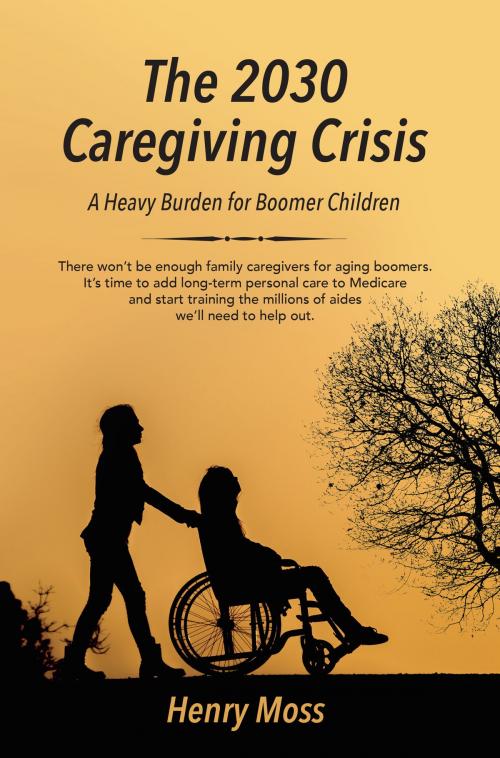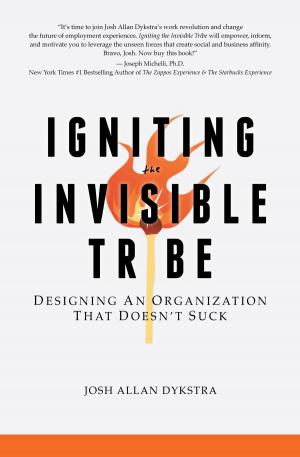The 2030 Caregiving Crisis
A Heavy Burden for Boomer Children
Nonfiction, Family & Relationships, Aging, Eldercare| Author: | Henry Moss | ISBN: | 9781682223598 |
| Publisher: | BookBaby | Publication: | November 2, 2015 |
| Imprint: | Language: | English |
| Author: | Henry Moss |
| ISBN: | 9781682223598 |
| Publisher: | BookBaby |
| Publication: | November 2, 2015 |
| Imprint: | |
| Language: | English |
The U.S. lacks a long-term care system. The closest it has is Medicaid, a safety net program for the very poor. According to the Department of Health and Human Services, 90% of older persons receiving help with activities of daily living (ADLs) in 2011 relied on some "informal" care, from family members and friends. About two thirds relied on only informal care. Family and friends collectively provided 75–80% of total care hours in non-institutional settings. Synthesizing the latest research, this book argues that we are underestimating the extent of caregiving need for baby boomers when they become the oldest old in 2030-2050. It also suggests we are overestimating boomer health and wealth. Disability levels will likely grow beyond expectations, through an increasing incidence and prevalence of dementia, mobility disorders, and general frailty, the result of increasing levels of obesity, hypertension, and atherosclerosis. Correspondingly, the caregiving situation will get much worse. The tidal wave of boomer retirement is upon us along with the "birth dearth" that followed. Family caregivers, adult children in particular, face bleak prospects. Adult children of boomers will be dealing with work obligations, their children's college expenses, the effects of the recent recession, and ongoing economic stagnation. They will be hard-pressed to take on the extent of caregiving that will be needed by the huge boomer generation. This book makes the case for recruiting and training millions of additional personal care aides as boomers age into their 80s and face chronic illness and severe disability. The aides will be needed to assure safety and emotional well-being and to relieve overburdened family members. They should be deployed into private homes, senior residences, and even nursing homes to ensure quality person-centered care for up to 24/7. Medicare, or a new insurance program, should make such assistance universally available.
The U.S. lacks a long-term care system. The closest it has is Medicaid, a safety net program for the very poor. According to the Department of Health and Human Services, 90% of older persons receiving help with activities of daily living (ADLs) in 2011 relied on some "informal" care, from family members and friends. About two thirds relied on only informal care. Family and friends collectively provided 75–80% of total care hours in non-institutional settings. Synthesizing the latest research, this book argues that we are underestimating the extent of caregiving need for baby boomers when they become the oldest old in 2030-2050. It also suggests we are overestimating boomer health and wealth. Disability levels will likely grow beyond expectations, through an increasing incidence and prevalence of dementia, mobility disorders, and general frailty, the result of increasing levels of obesity, hypertension, and atherosclerosis. Correspondingly, the caregiving situation will get much worse. The tidal wave of boomer retirement is upon us along with the "birth dearth" that followed. Family caregivers, adult children in particular, face bleak prospects. Adult children of boomers will be dealing with work obligations, their children's college expenses, the effects of the recent recession, and ongoing economic stagnation. They will be hard-pressed to take on the extent of caregiving that will be needed by the huge boomer generation. This book makes the case for recruiting and training millions of additional personal care aides as boomers age into their 80s and face chronic illness and severe disability. The aides will be needed to assure safety and emotional well-being and to relieve overburdened family members. They should be deployed into private homes, senior residences, and even nursing homes to ensure quality person-centered care for up to 24/7. Medicare, or a new insurance program, should make such assistance universally available.















